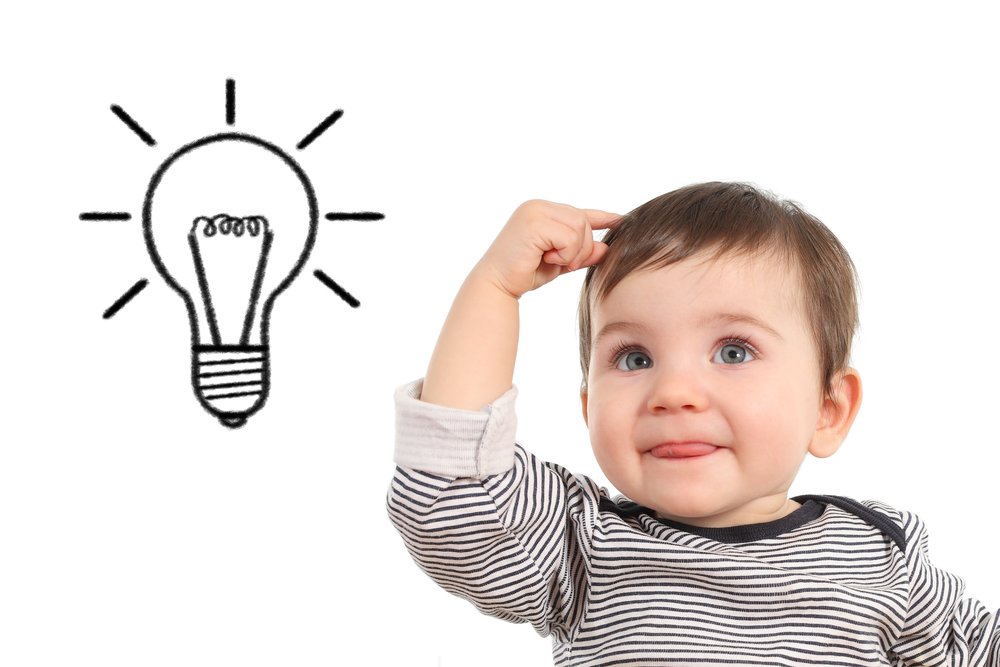Key points:
- Create consistency and routines for your baby, especially if they’re 0-3 months old.
- Introduce new skills during playtime, focusing on the same one over several days.
- Use your baby’s name and talk to them often to enhance language development.
- Incorporate elements of surprise and novelty into your baby’s experiences to boost memory and attention.
Can you think back to your earliest memory? Chances are it may date back to when you were 3 or even 8 years old. Understanding your baby’s memory and attention, however, is a different story. It develops in stages and, even though it began to develop the moment your little one was born, it works more for recognition and familiarity purposes, giving them a sense of comfort when they experience something they recognize.
More specifically, during your baby’s first 2 months, they will be able to recognize familiar faces and voices, especially those they see every day. Newborns can recognize their mother’s voice at birth and will also recognize her smell after only one week! This kind of recognition is the first indication of memory.
Boosting your baby’s memory and attention
There are lots of things you can do to help your baby strengthen their memory and attention skills. Here are some tips and suggestions you can try at home:
1. Consistency & routines
This tip is particularly helpful if your baby is 0-3 months old. You can help your little one’s memory development by keeping their surroundings consistent and creating routines. Also, through repetitive routines, your little one will remember their responses and they’ll become automatic. For example, make their playtime predictable by keeping their toys in the same room and playing with them at the same time every day.
2. New skills & time
With your 0-3 months old, you can try to introduce new skills during playtime, focusing on each one during a whole week. Just spend a little part of playtime each day with that new skill; you can divide it into steps if you think it is necessary. For example, teach your baby how to play with a new toy and then introduce that object for about 5 minutes at a time over several days. Trying this new skill over different periods, rather than in one long session, will help your baby remember the skill longer.
3. Say your baby’s name & talk often
When your baby reaches 4 months, they will recognize the sound of their name and pay attention when they’re called. Even though your baby won’t talk yet, respond to their babbling and cooing. They will remember this “serve and return” pattern later when they have conversations. When talking to your baby, remember to say their name often too, so that they remember it belongs to them! This also goes for your name as well –call yourself “Mommy/Daddy” so that they create the connection.
You can take advantage of bedtime stories. When you are reading to your baby, make sure to point to the pictures and say out loud the actions the characters are performing (“dancing”, “climbing”), or even the colors of their outfits. Invite your baby to gesture as well, it will be of great help for their language development!
4. The element of surprise
If you add an unexpected element of novelty to their daily experience that information becomes more memorable. Use the technique of surprise now and then to light up your child’s brain pathways –which are more open to processing information and remembering it. When a baby’s expectations of an object’s behavior are challenged, they learn best! Curiosity will draw babies to test, explore, and, consequently, figure out what was going on to better understand the situation.
5. Reinforce repetition
Although we just talked about the importance of being creative and trying out new things with your baby, it is also important to repeat certain activities to enhance existing neural connections. Deeper memories and strong neural connections are created when babies are exposed to repetition. Balance novelty and reinforcement for a perfect combination!
6. Naps
We know that babies devote most of their time to sleeping. However, it remained unclear whether a baby’s daytime nap, right after learning something new, helped them remember –until now. Researchers found that only the babies who’d taken naps (at least 30 min) after learning, actually remembered what they’d learned, especially after 24 hours. So you might want to keep that in mind when setting your baby’s nap-time schedule! Here is an article that explains this further.
What do you think about these ideas to boost memory and attention? Do you have any more recommendations? Leave a comment below!








